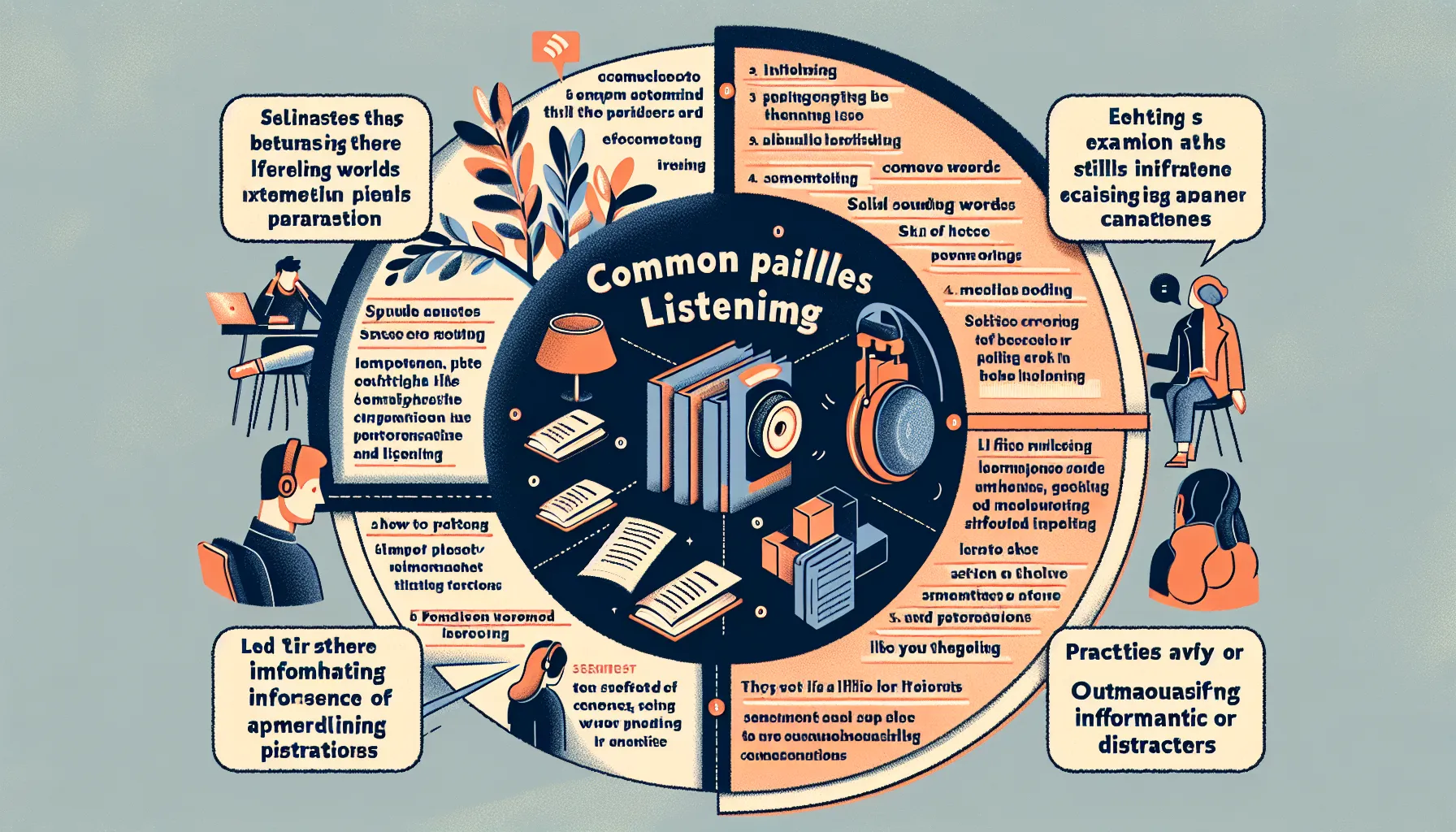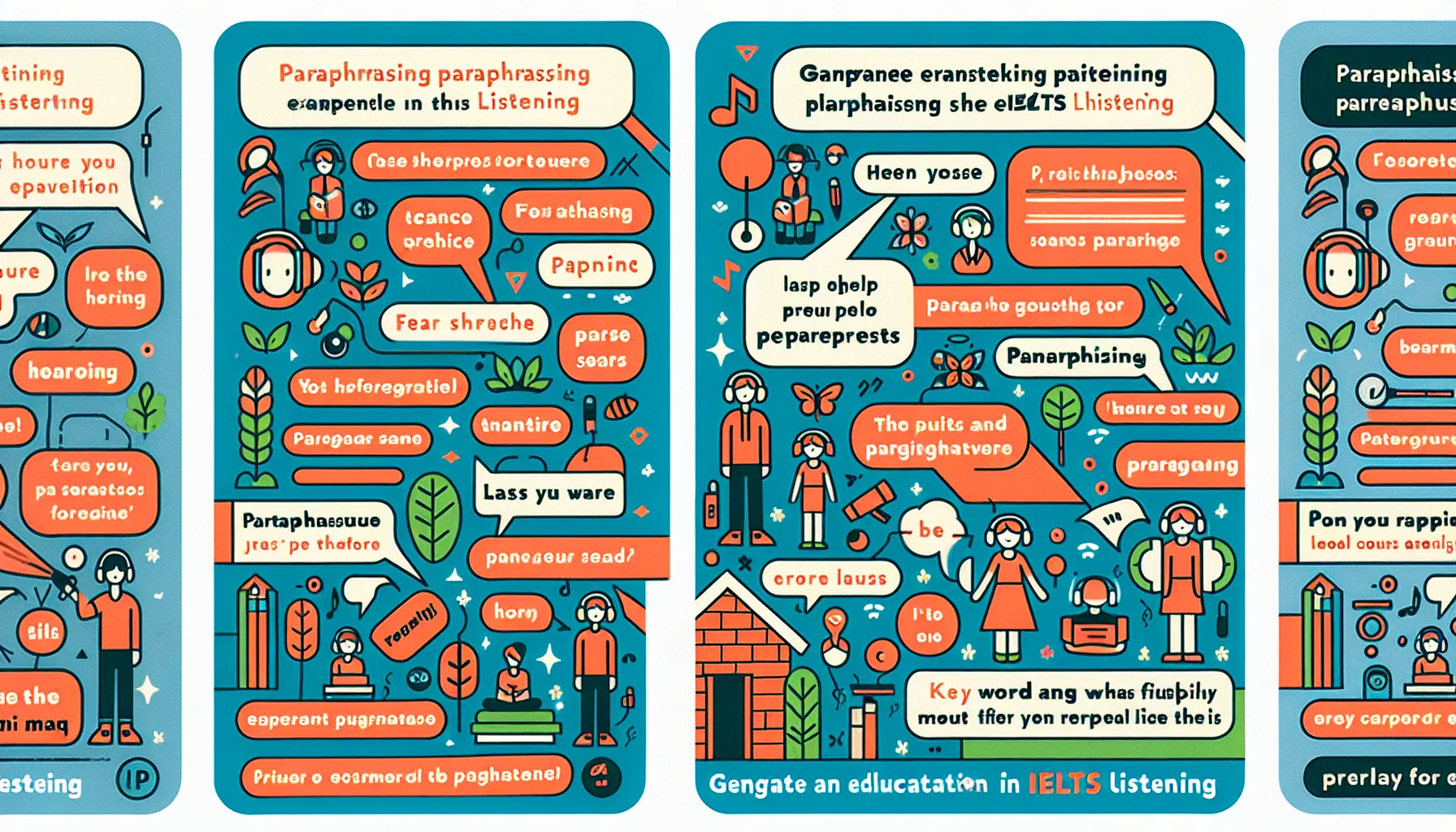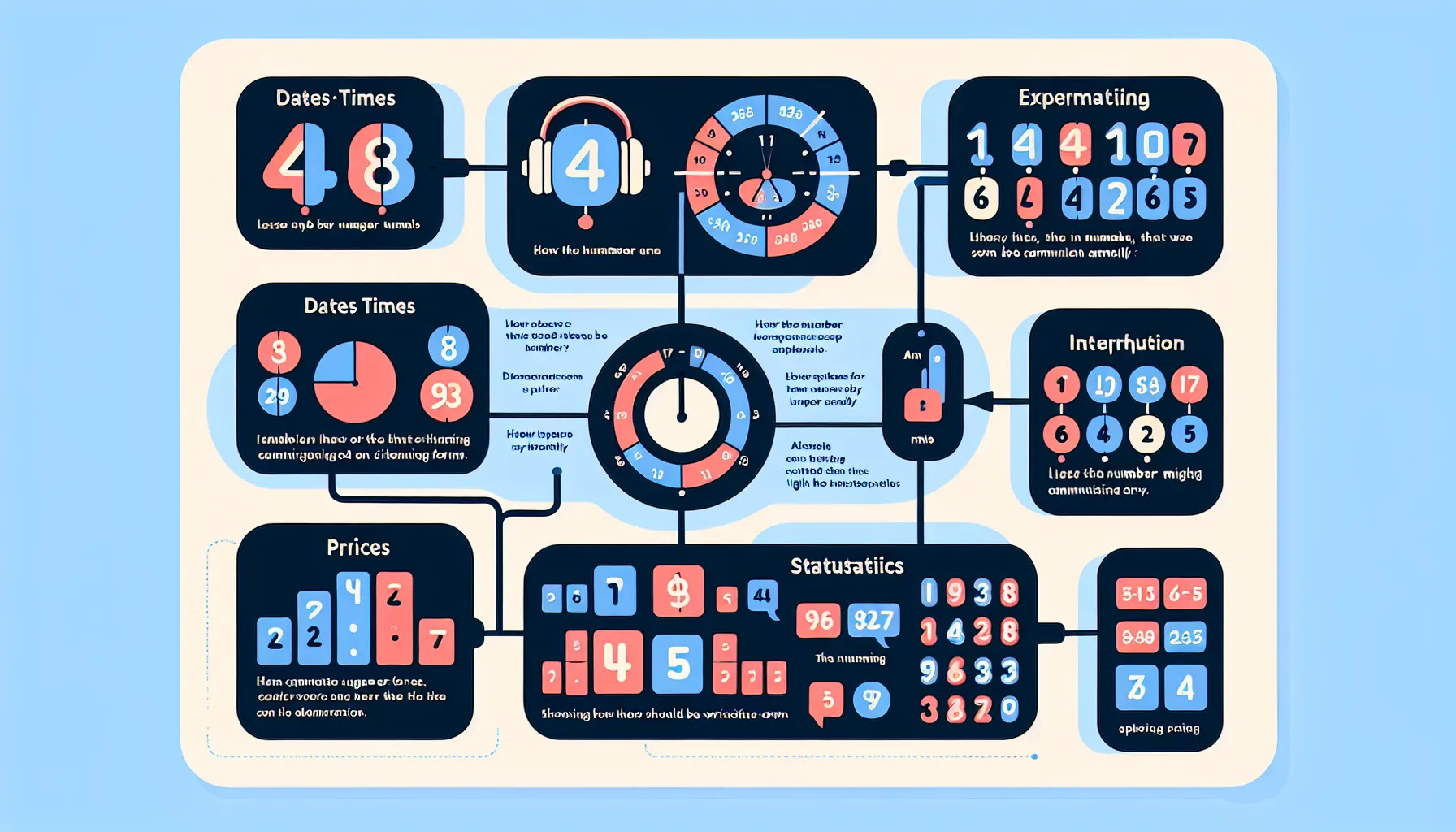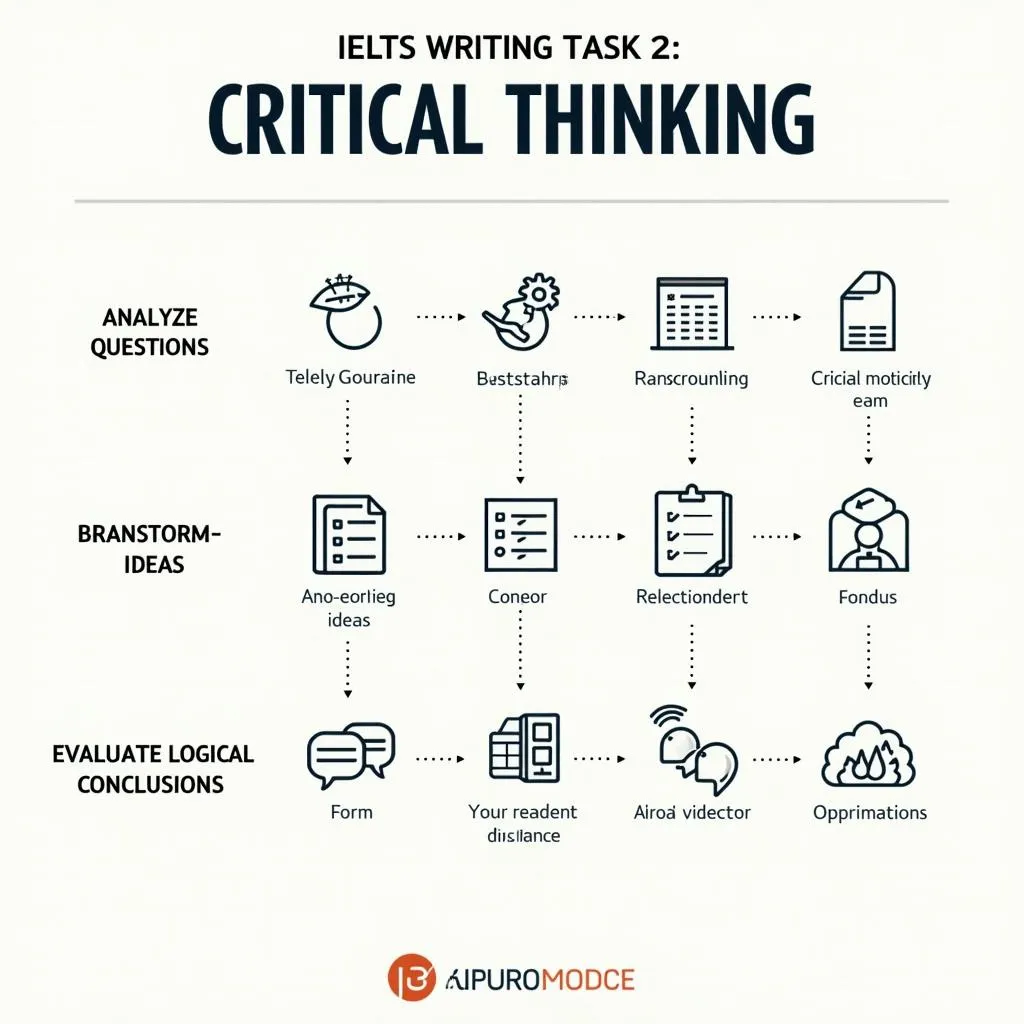Understanding IELTS Listening Traps
IELTS Listening can be a challenging component of the test, filled with various pitfalls that can trip up even well-prepared candidates. These traps are designed to test your ability to understand and interpret spoken English in various contexts. By familiarizing yourself with these common traps, you can significantly improve your chances of achieving a higher band score.
Nội dung bài viết
- Understanding IELTS Listening Traps
- Types of IELTS Listening Traps
- 1. Similar Sounds
- 2. Paraphrasing
- 3. Distractors
- 4. Numbers and Figures
- 5. Multiple Speakers
- Strategies to Overcome IELTS Listening Traps
- 1. Read Questions Beforehand
- 2. Focus on Keywords
- 3. Don’t Panic if You Miss Something
- 4. Practice Active Listening
- 5. Improve Your Vocabulary
- Common Mistakes to Avoid
- Next Steps in Your IELTS Preparation
 Common IELTS Listening traps overview
Common IELTS Listening traps overview
Types of IELTS Listening Traps
1. Similar Sounds
One of the most common traps in IELTS Listening is the use of words that sound similar but have different meanings. This can lead to confusion and incorrect answers if you’re not careful.
Example:
- You might hear: “The meeting is scheduled for June.”
- The correct answer could be: “The meeting is scheduled for July.”
To avoid this trap, focus on the context of the conversation and listen for any clarifications or repetitions that might follow.
2. Paraphrasing
IELTS examiners often use paraphrasing to test your understanding of spoken English. This means that the information you need to answer a question may be expressed differently from how it’s written in the question itself.
Example:
- Question: “What is the speaker’s main concern about the project?”
- You might hear: “The thing that really worries me about this project is the tight deadline.”
To overcome this, try to understand the overall meaning rather than focusing on specific words. Practice paraphrasing exercises to improve your skills in this area.
 Paraphrasing examples in IELTS Listening
Paraphrasing examples in IELTS Listening
3. Distractors
Distractors are pieces of information that sound relevant but are not the correct answer. They are deliberately included to test your ability to distinguish between important and irrelevant information.
Example:
- Question: “What is the speaker’s occupation?”
- You might hear: “I used to work as a teacher, but now I’m a full-time writer.”
The key is to listen carefully for the most current and relevant information. Don’t rush to write down the first thing you hear that seems to answer the question.
4. Numbers and Figures
Numbers, dates, and other numerical information can be particularly tricky in the IELTS Listening test. They often come up in contexts like schedules, prices, or statistical information.
Example:
- You might hear: “The tour costs £1,550 for 15 days.”
- The question might ask about the daily cost, requiring you to do a quick calculation.
To handle this, practice listening to and writing down numbers quickly and accurately. Pay special attention to how numbers are pronounced in British and Australian English, as these are commonly used in IELTS.
 Handling numbers and figures in IELTS Listening
Handling numbers and figures in IELTS Listening
5. Multiple Speakers
Conversations with multiple speakers can be challenging, especially when speakers interrupt each other or have similar voices.
Example:
- Speaker 1: “I think we should go with the red design.”
- Speaker 2: “Actually, the blue one might be better because…”
- Speaker 3: “What about the green option? It’s more eco-friendly.”
To navigate this, try to identify each speaker’s stance or opinion on the topic being discussed. Pay attention to transition words that might indicate a change in speaker or opinion.
Strategies to Overcome IELTS Listening Traps
1. Read Questions Beforehand
Always use the time given before each section to read through the questions. This will give you an idea of what information to listen for.
2. Focus on Keywords
Identify keywords in the questions and listen out for them or their synonyms in the audio. This can help you locate the relevant information more easily.
3. Don’t Panic if You Miss Something
If you miss an answer, stay calm and move on. Dwelling on a missed question can cause you to miss subsequent answers.
4. Practice Active Listening
Engage with the content you’re listening to. Try to visualize the scenario or predict what might come next. This keeps your mind alert and focused.
 Active listening techniques for IELTS
Active listening techniques for IELTS
5. Improve Your Vocabulary
A strong vocabulary will help you understand paraphrasing and context better. Regular reading and listening to English content can significantly improve your vocabulary.
Common Mistakes to Avoid
-
Writing answers as you listen: This can distract you from important information. Instead, make quick notes and write full answers in the gaps provided.
-
Ignoring spelling and grammar: Remember, incorrect spelling or grammar can cost you marks, even if your answer is conceptually correct.
-
Not following instructions: Pay close attention to word limits and specific instructions like “NO MORE THAN THREE WORDS.”
-
Leaving answers blank: Always provide an answer, even if you’re unsure. There’s no penalty for incorrect answers, but blank answers guarantee zero marks.
Next Steps in Your IELTS Preparation
-
Take practice tests regularly to familiarize yourself with the format and common traps.
-
Listen to a variety of English accents through podcasts, news broadcasts, and academic lectures.
-
Time yourself when practicing to get used to the pace of the actual test.
-
Review your mistakes after each practice session and understand why you fell for certain traps.
-
Consider joining an IELTS preparation course or finding a study partner to practice with.
By understanding these common IELTS Listening traps and implementing strategies to overcome them, you’ll be well-prepared to tackle this challenging section of the test. Remember, practice and familiarity with the test format are key to success in IELTS Listening. Stay focused, stay calm, and approach each question with confidence.


